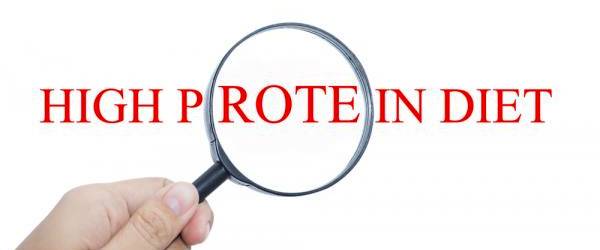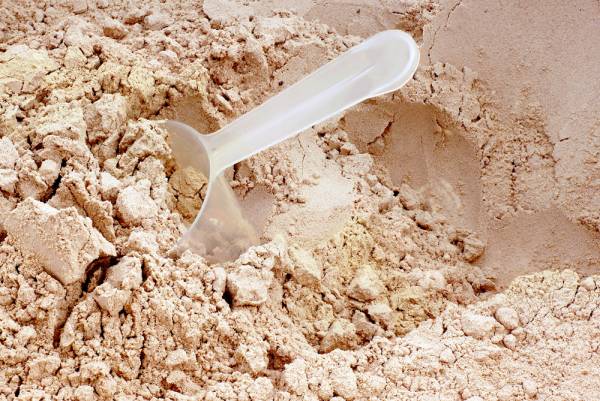There’s one thing we can say about protein: it’s complicated. Like so many other nutrition topics, there’s a lot we still don’t know, and what we do know isn’t always as straightforward as we would like it to be.
But there’s one other thing we can say about protein: it’s important. So let’s talk about how much we need, when we need it, and where we get it.
There’s one thing we can say about protein: it’s complicated. Like so many other nutrition topics, there’s a lot we still don’t know, and what we do know isn’t always as straightforward as we would like it to be.
But there’s one other thing we can say about protein: it’s important. So let’s talk about how much we need, when we need it, and where we get it.
How Much Do I Need?
There’s a big difference between eating enough protein to meet your daily minimum requirement and consuming enough protein to optimize muscle growth.
In his article, How Much Protein Do You Need? Science Weighs In, coach Tom Kelso explains the disparity between the recommended daily allowance (RDA) for protein and what athletes actually need:
The MINIMUM amount of protein for athletes should be at least .55 grams/pound/day. Depending upon your sport or training regimen, the daily requirement can go as high as .9 to 1 grams/pound.
Protein intake simplified:
- If you’re an avid athlete/trainee, you need more than the consensus of .36 grams/pound/day (.55 to 1 gram/pound/day). Use the on-line calculator that offers a reasonable estimate of your daily needs.
- Divide the total estimate by the number of meals you consume each day. Try to eat that amount at each meal.
When I was pregnant, I took a childbirth class and the instructors recommended we eat 80-100g protein while incubating. At a bodyweight of 100lb, that was just a little less than one gram per pound for me.
It was hard to eat that much protein. I tried for about a week and then gave up. But “one gram per pound of bodyweight” is a common battle cry for gym-goers. Is that really how much you need?
Doug Dupont covered one recent study on high-protein diets in his article, More Protein Doesn’t Make a Difference.
The participants were split into two groups. The control group was instructed to keep doing what they were doing. They exercised and ate the same as usual. The other group was told to keep exercising and eating the same way as before, with one exception. They were to eat more protein, to the tune of two grams per pound of bodyweight. They averaged just over 300 grams of protein per day.
The results were that the high-protein diet resulted in exactly zero significant change. The conclusion of the researchers was in line with the results: there was no effect of increased protein intake. The high protein intake didn’t cause the participants to build muscle, so there’s no reason to consume an extreme amount of protein.
Lesson Learned: For trained individuals, loading up the protein powder doesn’t seem to make a huge difference.

When Do I Need It?
The topic of timing is perhaps just as rife with bro-science. Coach Jeff Barnett covered a study that explored the topic of post-workout protein consumption.
The researchers reviewed over twenty studies on protein and post-workout effects. They found that the anabolic window may last up to six hours after a workout – or it may not exist at all. Here’s Jeff’s conclusion:
The big conclusion I take from this study is that total protein intake is crucial to athletic performance. This means you can’t rely on a post-workout drink and the mythical anabolic window to deliver most of the protein you eat each day. Regular, moderate doses of protein are necessary to support a hard-training athlete looking to build lean muscle. The post-workout shake isn’t a magical solution that allows you to eat Saltine crackers and peanut butter cups the remaining 23 hours of the day. Post-workout nutrition is just a part of the solution, not the full solution.
So how about another important part of the solution: pre-workout protein consumption?
Here, again, we run into some interesting new evidence presented in Doug Dupont’s article, The Pre-Workout Benefits (and Drawbacks) of Carbs vs. Protein. Researchers compared two groups of basketball players to see how carbohydrate and protein consumption affected a series of athletic tests.
The major finding was a reduction of creatine kinase, the blood marker most commonly used to find muscle damage. In the trial that consumed protein with the carbs, creatine kinase was almost as low as half what it was in the carb-only group. This could mean faster recoveries and less likelihood to overtrain.
Despite reduced markers for damage right after exercise, the protein trial showed similar performance values to the carb-only trial.Jumping height was similar, and so was sprinting speed. In fact, there was a trend towards better endurance in sprinting with the protein.
Lesson Learned: Overall protein intake seems to be the most important thing, but if you are going to obsess about timing, try getting your protein before your workout.
Where Do I Get It?
Plant-Based Sources: A well-planned combination of plant sources can also provide balanced protein for people who don’t eat meat or other animal foods. Coach Jeff Taraday listed five plant-based protein sources to try:
- Leafy Greens and Non-Starchy Vegetables
- Beans, Lentils, and Other Legumes
- Seitan
- Raw Nuts and Seeds
- Plant-Based Protein Powders
For more information on vegan protein sources, check out Jeff’s article, 5 Easy Ways to Get More Plant-Based Protein.
Supplements: Getting all your protein from food sources can be a challenge, particularly if you’re trying to build muscle. Follow this link to see a list of all the protein powders we’ve reviewed to help decide which one to try next.

So, What’s the Catch?
Lest you leave this article feeling satisfied and complacent in your knowledge, here are three more unsettling facts about protein. You know what they say – never get too comfortable.
- Labels Lie: Anthony Roberts established this fact in his article, 10 Things I Know About Protein That You Don’t. Labels like, “undenatured,” “cold filtered,” and “100% hydrolyzed” might not be as promising as they sound, and they’re probably not worth the extra money, either.
- Protein Isn’t What You Think It Is: All those little diagrams we’ve all memorized about protein synthesis are just a small glimmer of the truth. For example, Anthony Roberts discussed the distinction between a whole protein and the amino acids that make it up. Anthony wrote, “Even if we take the exact same aminos in the same ratios and amounts, we can’t replicate the effects of the whole protein.“ Learn more things you didn’t already know about protein in Anthony’s article, 10 MORE Things I Know About Protein That You Don’t.
- Protein Isn’t All You Need: I know this is an obvious point, but it’s easy to get wrapped in diets that focus on a single macronutrient, whether we’re talking about high-protein diets, ketogenic diets, or Atkins. Like any other nutrient, protein always works in combination with other vitamins, minerals, and macronutrients. For example, in my interviews with Sally Fallon of the Weston A. Price Foundation, she pointed out the fact that too much protein can deplete vitamin A and lead to burnout.
So be smart and balanced in your diet, just like you are in your training.
Photos courtesy of Shutterstock.






